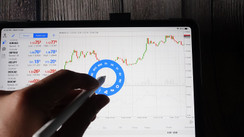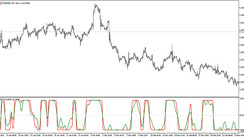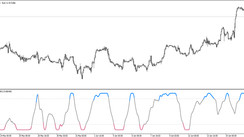Keeping a trading journal plays an integral part in becoming and staying a profitable Forex trader. The professional traders and the best traders know this and they always keep a trading journal.
Having a detailed trading journal is especially important for a trader that is starting out in Forex. Of course, the reasons for that are obvious. A new trader should strive to learn as much as possible and as quickly as possible. And, nothing can substitute a good amount of time spent in analyzing your own performance and results. A trading journal helps you to do exactly that and it is highly recommended that every trader goes through the process regularly.
So, what is a trading journal?
Essentially, a trading journal is a written record of all trading activities of the trader such as the rationale behind the taken trades, the plan for the trades and the outcome of each taken trade. A trading journal can take many different forms and can be as detailed as the trader wants it to be.
Traders need a trading journal because there is no other way to record every bit of detail that is going on in the moments of making a trading decision. A trade can be taken based on technicals, fundamentals, sentiment or a combination of the three. If you just look at the trading history from your platform, it’s going to be rather hard to remember why you took and why you closed a particular trade a few months or a few years ago. In your trading journal you have everything written down, and thus, for any trade you go back to, you’ll exactly know how and what happened from the point of entering to the point of closing that trade.
Keeping a trading journal is a great learning experience that is also very personal. Essentially, it serves as a self-monitoring mechanism and it’s the best way to catch your mistakes early on.
The more detailed the journal the better. Try to record everything that you can think of. This way, you’ll have a lot of material to go back to for studying in order to gain an insight into your trading strategies, style, and psychology.
In fact, trading psychology is a crucial but very tricky aspect of trading. Keeping a trading journal is one of the best ways to improve on your psychological weaknesses and take full advantage of your strengths.
So, without more ado, here are a few ideas on what to write down in the trading journal for each trade:
Reasons for entry such as the technical trade setup or perhaps the fundamentals
- Describe the reasons for entering this trade in great detail. This part can be especially important in the future as it can help you to improve your trading strategies. Describe even the context in which the market was at that particular moment, like trade sentiment, any news reports released on the day etc. The more information you write down the better.
Target/aim with this trade and reasons for that
- Again, whether it’s based on technicals or fundamentals, write everything down. You may use a take profit order on the platform, or you may prefer a mental target. Either way, use the trading journal to record everything, and later, when you’ll need a detailed look into your trading habits everything will be within easy reach.
Stop loss - Invalidation point for the trade
- Under what conditions will this trade become invalid? Again, you don’t have to use the stop loss order on your platform, but you definitely need to use a mental stop at least. Write down all the reasons for placing the stop at the planned level. Describe what kind of a shift in the fundamentals or technicals will change things to the point where this trade will no longer be valid.
- Your expectations for how well the trade will go Based on this you may also include details about the specific position size you chose for this trade and why. Then, over time, going back to your trading journal to look at your past actions and your thinking processes will enable you to improve and grow. You will soon be able to make more accurate forecasts about the market, and, with that more profitable trades also.
The actual outcome of the trade
- In the end, write down how the trade went and your thoughts about it at the time. Then when you’ll be reading the trading journal a few months down the road you will probably be able to better understand why things unfolded the way they did on that specific trade.
Conclusion
As you are building experience in Forex trading and keeping a trading journal you will be getting better at it over time. Having detailed records of all your past trades can turn into a huge advantage in the future.
Unfortunately, most retail Forex traders don’t keep a trading journal, but, most retail Forex traders also lose. So, it’s definitely worth and highly recommended to keep your detailed trading journal as discussed above. The benefits of it, far outweigh the minor nuisances to keep it.





